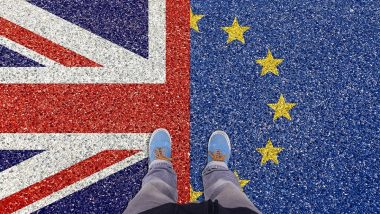The top brass of Tory government has indicated its will to proceed with a no-deal Brexit rather than endlessly negotiating with the European Union. The latter has also refrained from accepting the demands made by the Boris Johnson government - the acceptance of which would allow UK to share nearly most of the benefits of remaining within a conglomerate while ditching the liabilities which the member nations share.
Prime Minister Boris Johnson on Sunday claimed that his government would opt for the no-deal Brexit if a negotiation is not finalised by October 15. This was followed by an even more explicit statement by Housing Secretary Robert Jenrick, who told reporters earlier today that the no-deal Brexit is the most likely outcome if the EU continues its non-flexible approach.
The deadline to seal the withdrawal agreement is December 31. As the UK intends to walk outside the political conglomerate without a pact, here is a brief explainer on no-deal brexit and how it would shape the post-Brexit EU-UK relations.
What Is No Deal Brexit?
A no-deal exit from the European Union comes into effect if a member nation finalises the decision to leave the conglomerate without signing a withdrawal agreement.
Under Article 50 of the Treaty on EU, a period of two years would be given to any member nation for finalising the exit deal before completing the divorce. The two-year period could be increased if the EU members along with leaving nation agrees.
If the EU and UK fail to sign a deal by December 31, 2020, and also fail to extend the period for negotiating the withdrawal agreement, .the no-deal Brexit would come into effect.
How UK-EU Relations Will Shape Out If Withdrawal Agreement is Ditched
The biggest loss for the UK would be its departure from the Single Market and Customs Union. The Great Britain would be considered as a "third country", and would be subjected to the same import taxes as other non-EU members around the globe. The duties are as high as 90 percent for lamb imports.
The EU, according to reports, is considering to subject UK to full Customs regulations from January despite the UK suggesting that it would be implement a Customs regime for EU products in a phased manner over six months.
Business operating across the conglomerate, with interests also based in the UK, would also be hit due to no-data sharing agreement. While the same is on the cards under the Withdrawal Agreement, under a no-deal Brexit, the EU would prevent companies from sharing data with the UK unless it finds adequate data safeguarding measures adopted by Britain.
Transport is another area that would be severely affected by a no-deal Brexit, as road travel between EU nations and the UK would be severely regulated. Only a limited number of lorries would be allowed to ferry goods and services unabated on both sides. This in turn would lead to logistical issues, thereby hitting the supply chain network.
The railway mode of transport is expected to be hit whether the UK leaves the EU with a deal or without a deal. Both the sides would need to adopt a new rail policy from 2021. Air travel would also be affected in either cases as EU-based carriers would not be allowed to operate intra-UK flights and vica versa.
In absence of a withdrawal agreement, several UK-based investors will find a hard time to smoothen their business activities in the EU. The costs are expected to go up as the companies of UK would be required to registered as "third country" outfits. The regulatory costs would also be accordingly imposed.
One area where the UK is expected to benefit in case of a no-deal Brexit is fisheries. Without a deal, the restrictions imposed by the EU on fishing activities in the shared waters would not exist. In other words, the UK would be under its own rights to expand fishing activities in the entire water body that comes under its naval territory.
(The above story first appeared on LatestLY on Sep 08, 2020 10:53 PM IST. For more news and updates on politics, world, sports, entertainment and lifestyle, log on to our website latestly.com).













 Quickly
Quickly




















